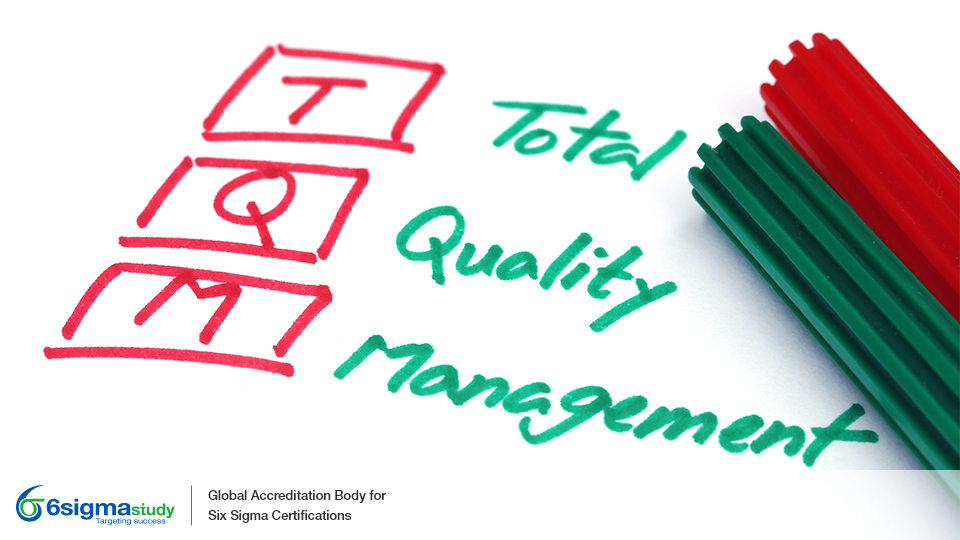The 8 Principles of TQM
Posted by 6sigmastudy® on October 25, 2023 | Total Quality
Keywords: Six Sigma 6sigmastudy TQM Six Sigma Yellow Belt (SSYB™) Six Sigma Green Belt (SSGB™) Six Sigma Black Belt (SSBB™) Lean Six Sigma Green Belt (LSSGB™) Lean Six Sigma Black Belt (LSSBB™) Free Articles Free Six Sigma Articles TQM Six sigma define dmaic dmadv
Total Quality Management (TQM) represents a strategic approach to business management that seeks to institute a comprehensive quality enhancement initiative within an organization. As per the definition provided by the International Organization for Standardization (ISO), “TQM serves as a management philosophy that places quality at its core. It is a philosophy that hinges on active involvement from all members of the organization, with the overarching objectives of achieving long-term success through the satisfaction of customers and the mutual benefits experienced by all stakeholders within the organization and society at large”. TQM finds wide-ranging applications in sectors such as manufacturing, education, government, and service industries, and it's even employed within the NASA space and science programs.
What are the 8 principles of TQM?
- Customer Focus: The initial principle of Total Quality Management redirects attention to the individuals purchasing your product or service. The quality of your product is, in essence, determined by your customers. When your product satisfies their needs and endures as long as or even longer than anticipated, it affirms to customers that their investment has been in a superior product. Given that companies rely on their customers, it is imperative to...
- Grasp the desires of customers.
- Meet the specifications and demands of customers.
- Surpass the expectations of customers.
- Customer Satisfaction: It involves delineating, comprehending, appraising, and steering expectations to ensure the fulfilment of customer demands. This entails achieving a balance between adherence to stipulated requirements and suitability for the intended purpose.
- Supplier partnership: Developing mutually advantageous partnerships with suppliers is valuable for enhancing overall business capabilities.
- Prevention over inspection: Generally, the expenses associated with preventing errors are significantly lower than the costs incurred when rectifying them after inspection.
- Management dedication and responsibility: This principle revolves around the execution of activities such as plan, do, check, and act (PDCA). Total Quality Management (TQM) necessitates the unwavering commitment of both management and the workforce to embrace a continuous improvement mindset with the goal of achieving optimal organizational performance. Furthermore, achieving success entails the active involvement of every team member. Nevertheless, it remains the duty of the management to lead by example and provide the essential resources for achieving success.
- Fact based decision making: Conducting analysis and collecting data contributes to more informed decision-making by leveraging the existing information. Informed decision-making fosters a deeper comprehension of customers and the market. The efficacy of decisions hinges on the thorough analysis of data and information.
- Employee involvement and empowerment: Elevating productivity, refining processes, and boosting sales is unattainable without the complete dedication of all employees. It's crucial that they comprehend the articulated vision and objectives. Equally important is ensuring they receive adequate training and the necessary resources to successfully accomplish their tasks, thus fostering their commitment to achieving goals in a timely manner.
- Continual/Continuous improvement: The primary emphasis of Total Quality Management (TQM) lies in the perpetual enhancement of the organization's comprehensive performance, encompassing the improvement of capabilities, human resources, processes, technology, and machinery capabilities. Achieving optimal efficiency and absolute customer satisfaction is not a sudden achievement; rather, it requires ongoing efforts from your business to identify ways to enhance processes and adapt products and services as customer needs evolve.
In conclusion, Total Quality Management (TQM) is a comprehensive approach that prioritizes customer satisfaction, continual improvement, and efficient processes. While it may demand substantial financial investment and face resistance to change, its long-term benefits, including enhanced product quality, cost savings, and increased adaptability, make it a valuable strategy for organizations dedicated to achieving excellence and competitiveness in today's dynamic business landscape. Total Quality Management is not just a management philosophy; it's a pathway to sustainable success and customer-centric excellence.
For more such interesting articles on Six Sigma and its concepts, please click here

